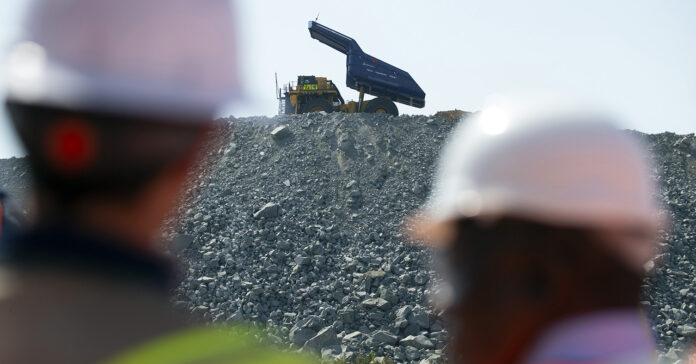Mpumalanga, South Africa’s energy heartland, is walking a tightrope between fuelling economic growth and safeguarding its most precious natural resource – water.
As coal mining continues to power the province’s industrial engine, the unintended consequence has been an alarming rise in water contamination. But Premier Mandla Ndlovu insists that his administration is not blind to the environmental cost of prosperity.
Instead, a coordinated response is under way to ensure that while jobs are created above ground, clean water keeps flowing below.
“The effect of coal mining is felt mostly during rainy seasons since rainwater washes through the surface and stormwater takes it to the raw water where the plants receive their abstracted raw water for treatment before it is distributed to households.”
The coalfields of Emalahleni, Steve Tshwete, Msukaligwa, Thaba Chweu, City of Mbombela and Chief Albert Luthuli municipalities house some of South Africa’s most lucrative mining operations. At the forefront are industry giants like Exxaro, Seriti, Glencore, South32, and Thungela, whose combined coal output contributes significantly to both provincial revenue and national energy security.
The Emalahleni region alone boasts over 22 active coal operations, making it the province’s most intensive mining hub. There, efforts to mitigate water contamination have led to pioneering reclamation projects.
“A reclamation project was completed and is used as a water supply alternative, which is currently benefiting the residents of Emalahleni,” said Ndlovu.
“Furthermore, 12 sand filters of the Witbank Water Treatment Works have been
refurbished to ensure the plant is able to treat water with mineral contamination.”
In Msukaligwa, high concentrations of manganese have forced the upgrading of Breyten and Ermelo water treatment facilities. Meanwhile, the Carolina plant in Chief Albert Luthuli municipality has reached 75% completion in its refurbishment to meet national Sans 241
standards.
To Ndlovu, this is a war with no retreat.
“Through DWS, mining houses are monitored and regulated to ensure that their operation does not contaminate the natural water resource.
“In cases where the water quality does not meet the standards, directives and court orders are issued to these mines to mitigate the situation.”
In Mbombela’s Umjindi region, a package plant draws water directly from the Agnes Mine, proof that mining by-products can be reclaimed into usable water.
Still, not all the province’s mining influence is destructive.
In fact, Ndlovu pointed out that mining houses have stepped in as unexpected service
delivery allies.
“Through Private Public Partnership, the mines surrounding the municipalities are greatly involved in ensuring that water is supplied to the residents,” he said.
Mining giants like Seriti and Exxaro have invested in water access and infrastructure in
the Highveld.



